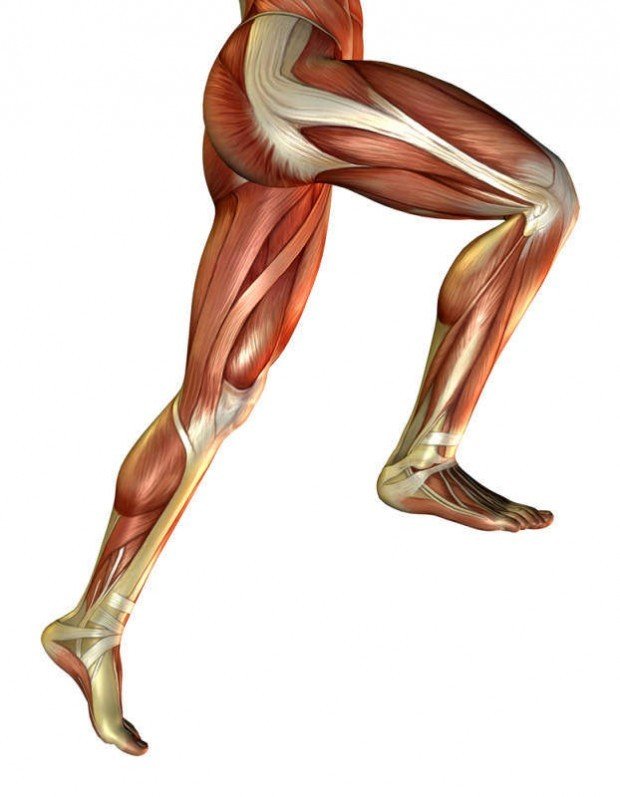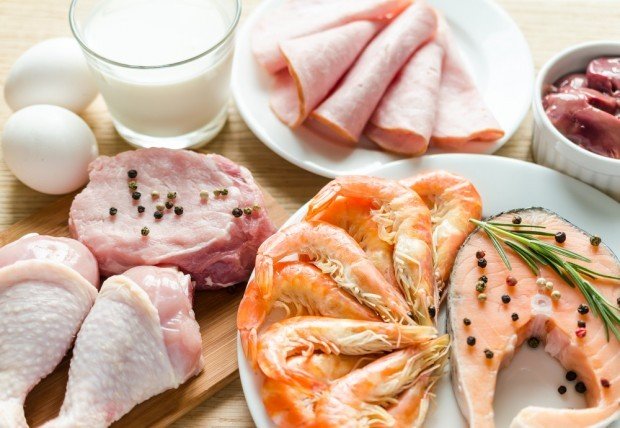Although the health effects of carbohydrates and fat are still controversial, when it comes to protein, everybody agrees that it is vital for the body. Whether you are young or aging, this nutrient is an important component of cells in the body. Nails and hair are mostly made up of this nutrient. The body uses it to build and repair tissues. Your body also uses the nutrient to make enzymes and hormones.
Some foods that are rich in proteins include fish, meat, eggs, beans, poultry, nuts, whole grains, etc. You can also take proteins that are grass-fed as a supplement. Research has shown that eating more proteins has many benefits to your body. However, not doing so can have an adverse effect on the body.
What happens if you don’t get enough protein?
The recommended intake is 56 grams per day for the average sedentary man and 46 grams per day for the average sedentary woman(1). However, a study published in the Annals of the New York Academy of Sciences found that around one billion people worldwide do not eat enough of this nutrient. Thus, not doing so can raise a few health concerns.
Infections
A low intake can affect the immune system. A poorly functioning immune system will have difficulty fighting off bacteria and thus your risk of infection will increase.
Muscle loss
As mentioned, one of protein’s main functions is to maintain muscle growth, strength, and repair. Not consuming enough can lead to muscle wasting over time. This is accompanied by sore, cramping and weakened muscles. A study published in the Journal of Physiology found greater muscle loss in elderly men and women who had consumed low amounts of protein.

In order to maintain a healthy body, it’s important that you consume adequate amounts of protein. That said, here are the reasons why you should eat more protein.
Reasons to Eat More Protein
1. Increases muscle mass and strength
Eating adequate amounts of protein can help you maintain your muscle mass and promote muscle growth. Several studies have shown that eating adequate amounts can help to increase muscle mass and strength. If you want to gain muscle, lift weights, or to be just physically active, you need to ensure that you eat adequate amounts (2).
2. Reduces appetite and hunger levels
Research shows that protein is incredibly filling – it helps you feel fuller even when you eat less food. That’s mainly because it reduces the level of the hunger hormone called ghrelin. It also increases the levels of peptide YY- a hormone that makes you feel full.
In a certain study, increasing protein intake from 18% to 30% of calories made women who are overweight to eat 441 fewer calories every day without deliberately restricting anything. If you want to lose weight or belly fat, you can replace some of your carbohydrates and fats with protein.
3. It is good for your bones
There is a myth that suggests that animal protein is not good for your bones. This myth is based on the theory that the acid in the body is increased by protein, hence causing calcium to drain the bones to neutralize the acid.
Most studies show that protein and animal protein included has great benefits for bone health. People who have a higher intake generally maintain their bone mass as they get older and have lower risks of fractures and osteoporosis. This is critical, especially for women who are at high risk of osteoporosis after menopause. When you eat adequate protein and stay active, you can prevent that from happening.
4. Increases fat burning and boosts metabolism
Eating can promote metabolism for a short duration. That’s because the body uses calories to digest and make use of the nutrients in the food. This is called the thermic effect of food [TEF]. It’s worth noting that not all foods have the same thermic effect – protein has a higher thermic effect than carbohydrates and fats. Protein has 20%-35% while fats and cabs have 5%-15%. Taking more protein can increase the number of calories you burn and significantly boost metabolism. You can burn up to 80-100 calories each day.
5. It promotes weight loss
Since a high-protein diet reduces calorie intake and cravings and boosts metabolism, individuals who increase their intake tend to lose weight very fast. One study showed that overweight women who ate 30% of their calories from protein lost 5 kg in 12 weeks even though they did not restrict their diet. Protein benefits as far as fat loss is concerned.

It is not just about losing weight; maintaining it is also crucial. An increase in intake has shown a great way of helping with weight maintenance. If you want to lose weight and maintain it, you should consider increasing it in your diet permanently.
6. Lowers blood pressure
There is no doubt that low blood pressure is a threat to the body. It can cause strokes, chronic kidney disease, and heart attacks. Studies show that an increased protein intake lowers systolic blood pressure by 1.76 mm. Another study found that apart from lowering blood pressure, a diet with a high amount of it reduces cholesterol and triglycerides. That’s why you should add more of the nutrient in your diet to prevent some of these chronic diseases caused by low blood pressure.
Which foods should I eat?
Over the past few years, a lot of people have decided to adopt a plant-based diet. Whilst beneficial, many are concerned about whether these diets can provide adequate protein if taken to extremes. The fact of the matter is that a well-planned plant-based diet that includes protein can provide your body with enough of the nutrient to ensure healthy functioning. That said, try including the following foods in your diet.
- Almonds
- Ezekiel Bread
- Legumes
- Lentils
- Nutritional Yeast
- Pumpkin seeds
- Quinoa
- Seitan
- Spinach
- Spirulina
- Tofu
The bottom line
Protein is found everywhere in your body and it’s imperative to the health of your muscles, skin, hair, bones, and blood. That said, a deficiency can create an array of issues. However, ensuring that you include foods that are rich in proteins in your diet is a sure way to achieve optimal health.



![women [longevity live]](https://longevitylive.com/wp-content/uploads/2020/01/photo-of-women-walking-down-the-street-1116984-100x100.jpg)











One Comment